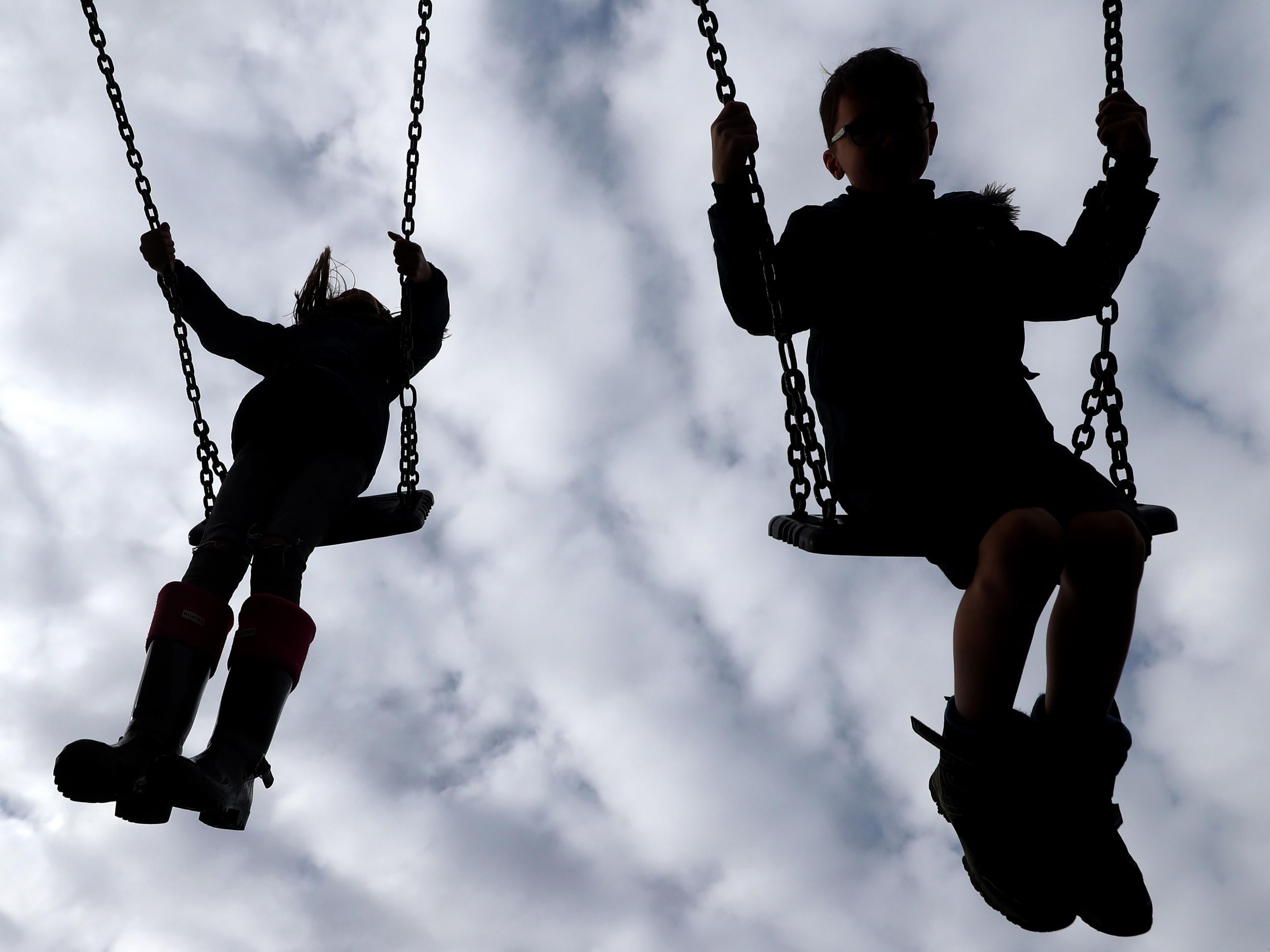Children at risk of losing creative streaks without free play, expert claims
Eight in 10 parents interviewed for study say they recognise developmental benefits of unhindered playtime

Your support helps us to tell the story
From reproductive rights to climate change to Big Tech, The Independent is on the ground when the story is developing. Whether it's investigating the financials of Elon Musk's pro-Trump PAC or producing our latest documentary, 'The A Word', which shines a light on the American women fighting for reproductive rights, we know how important it is to parse out the facts from the messaging.
At such a critical moment in US history, we need reporters on the ground. Your donation allows us to keep sending journalists to speak to both sides of the story.
The Independent is trusted by Americans across the entire political spectrum. And unlike many other quality news outlets, we choose not to lock Americans out of our reporting and analysis with paywalls. We believe quality journalism should be available to everyone, paid for by those who can afford it.
Your support makes all the difference.Opportunities for children to indulge their creativity are dwindling as a result of a lack of imaginative playtime, a leading social scientist has claimed.
Mark Stevenson predicted children might find themselves unable to develop certain aspects of innovative thinking and creativity because of an absence of unscheduled playtime – otherwise known as "free play".
Mr Stevenson was reacting to a study of 2,000 UK parents that found one in five children follow structured extra-curricular routines, leaving little time for imaginative play.
The research, commissioned by Petits Filous, also revealed eight in 10 parents recognise the benefits of imaginative play, with nearly half of children earmarking a simple cardboard box as their favourite playtime object.
Millions more still find pleasure in playing with other common household items such as packaging and pipe cleaners, the survey suggested.
Mr Stevenson added: “This is about reclaiming one of the bedrocks of creativity and innovation – free play.
“From our neurological development through to our ability to handle complexity and change, play is a foundation that, if taken away, severely limits our abilities and potential.
“We need a generation of radical innovators and we won’t get them if we curtail their creativity from childhood.
"Reclaiming play, therefore, is one of the most crucial steps we can take in re-imagining ourselves for the future.”
South West News Service
Join our commenting forum
Join thought-provoking conversations, follow other Independent readers and see their replies
0Comments